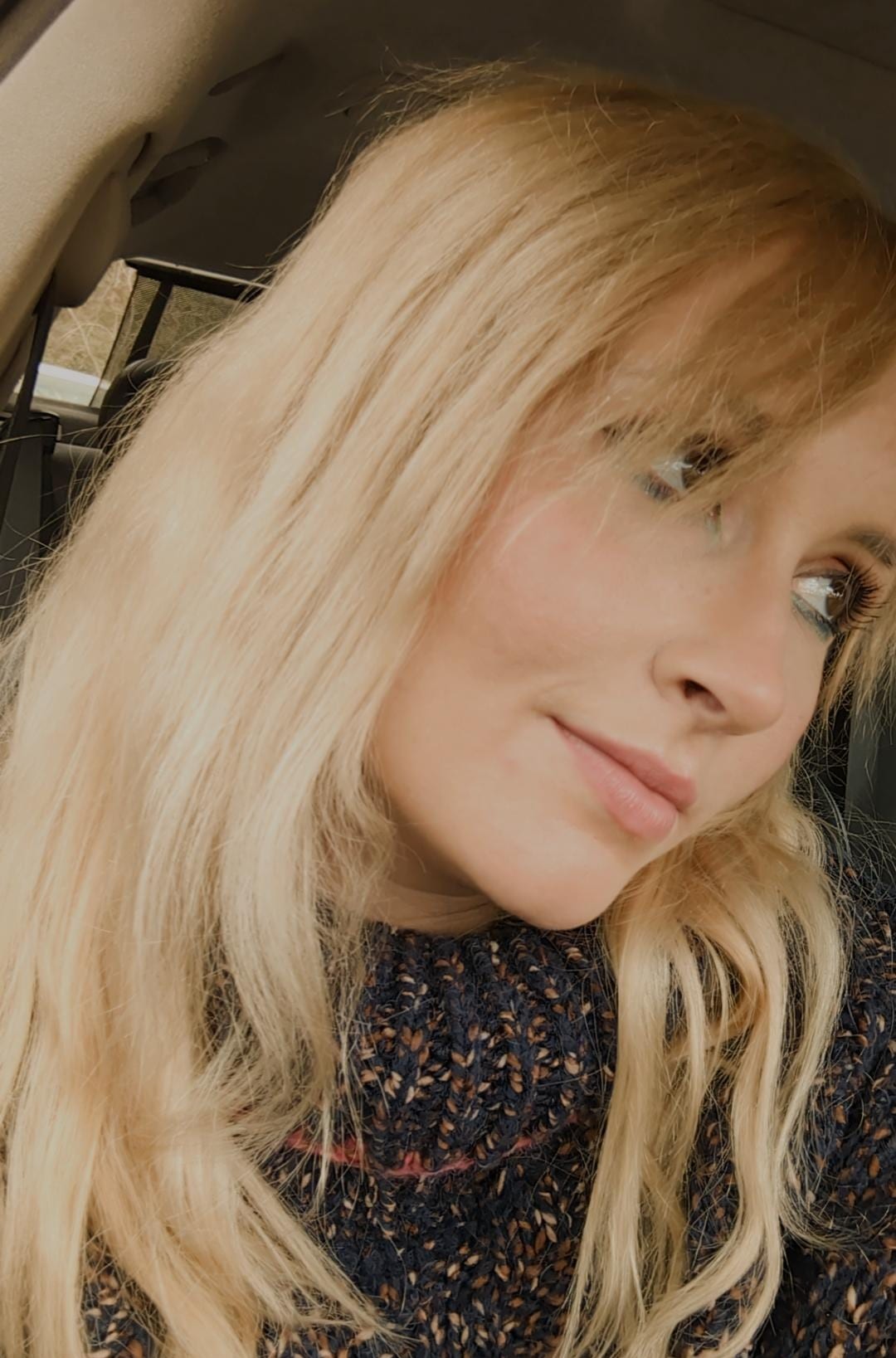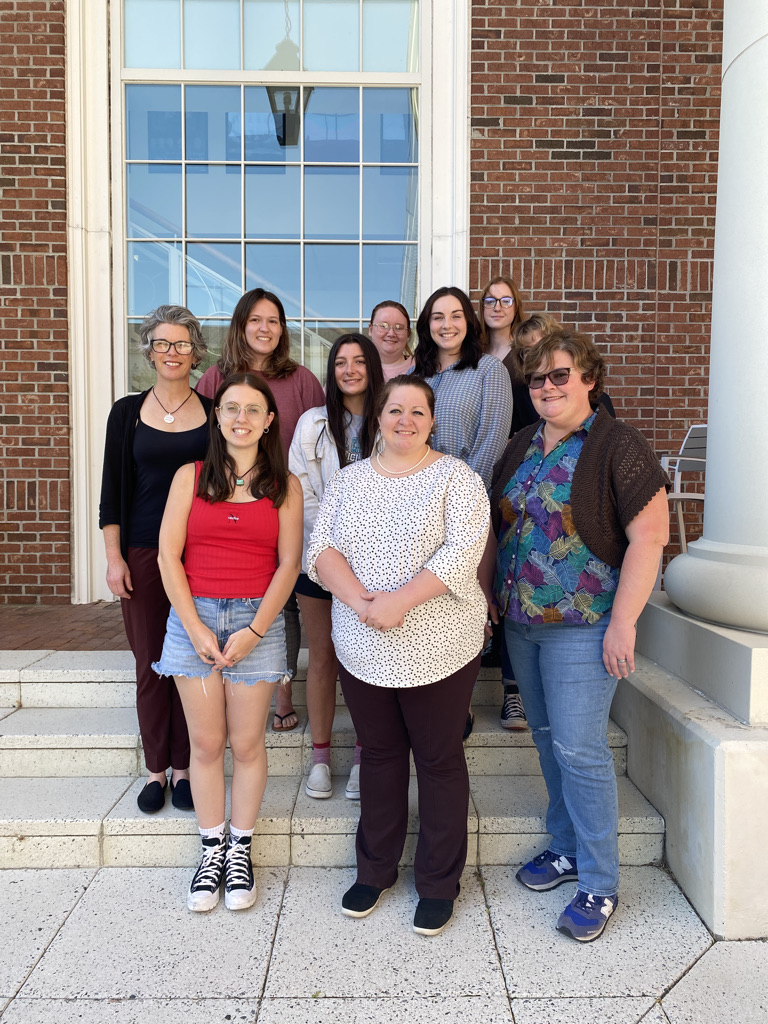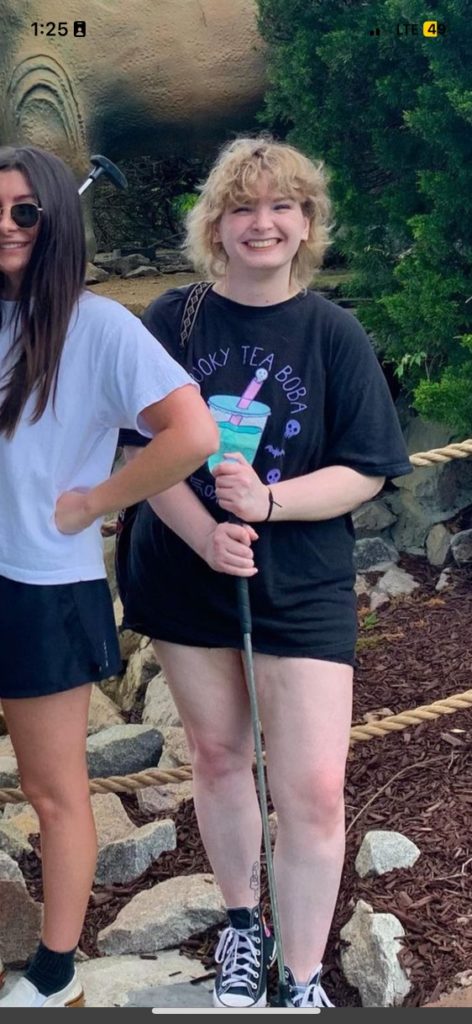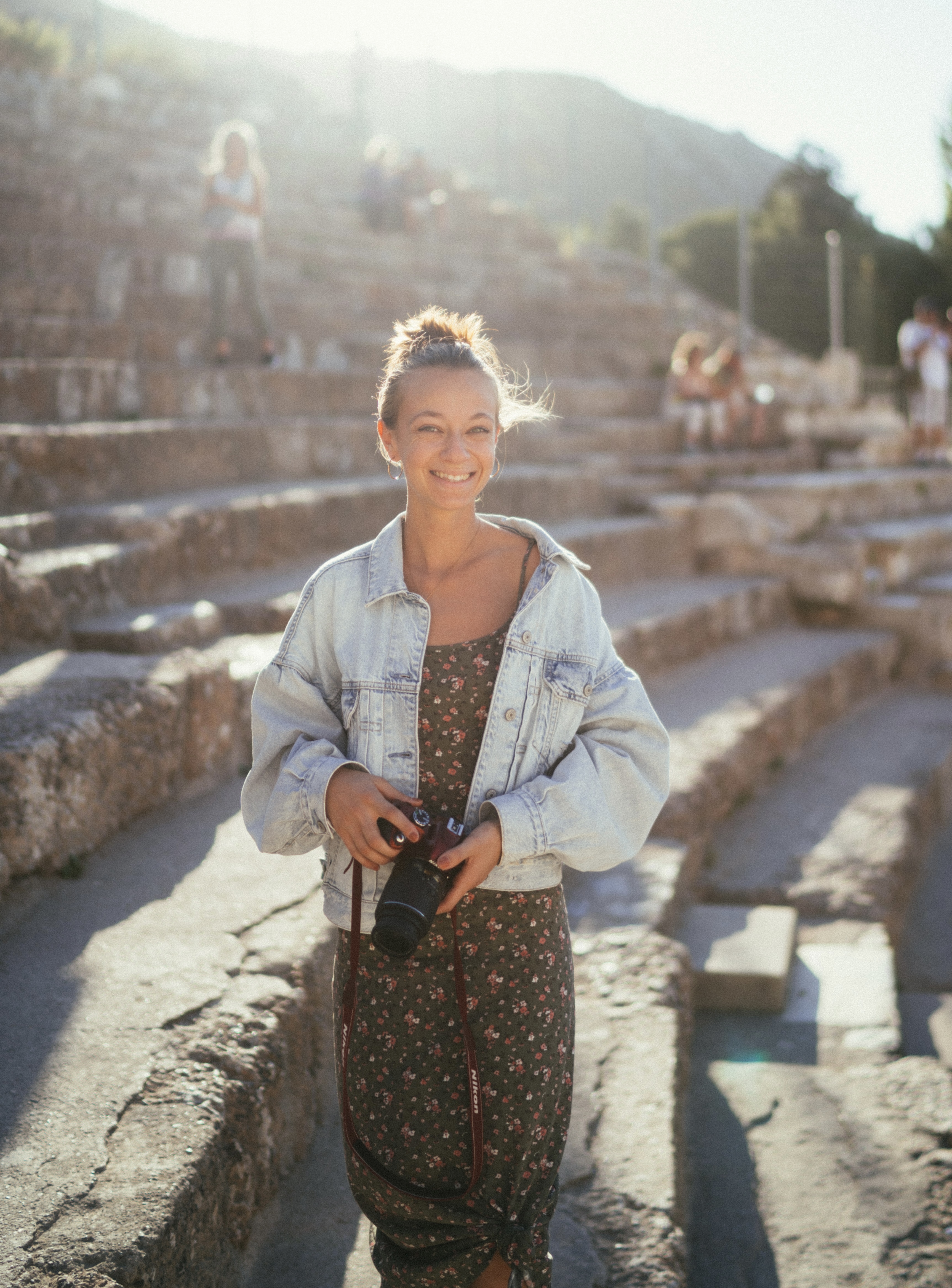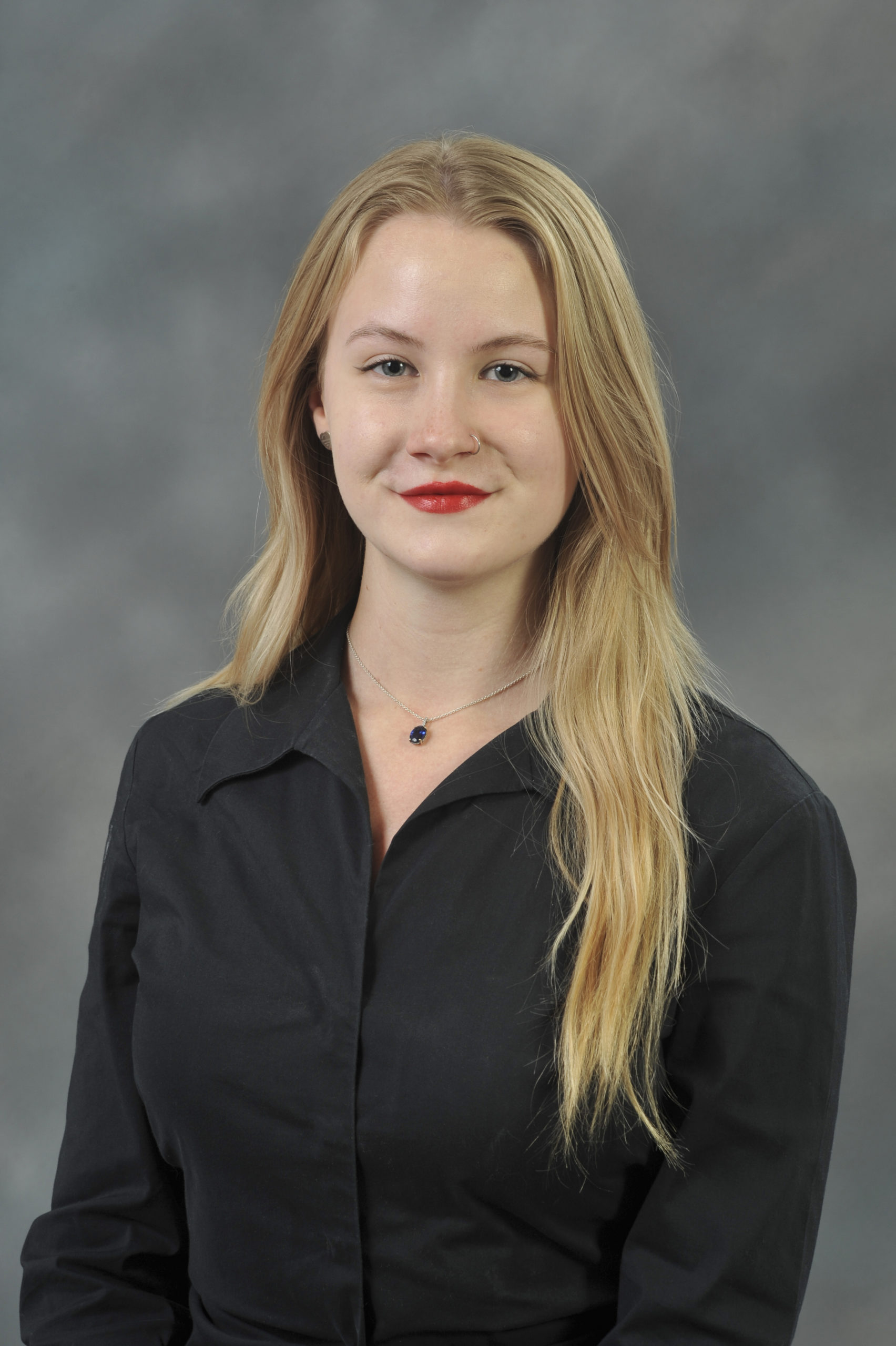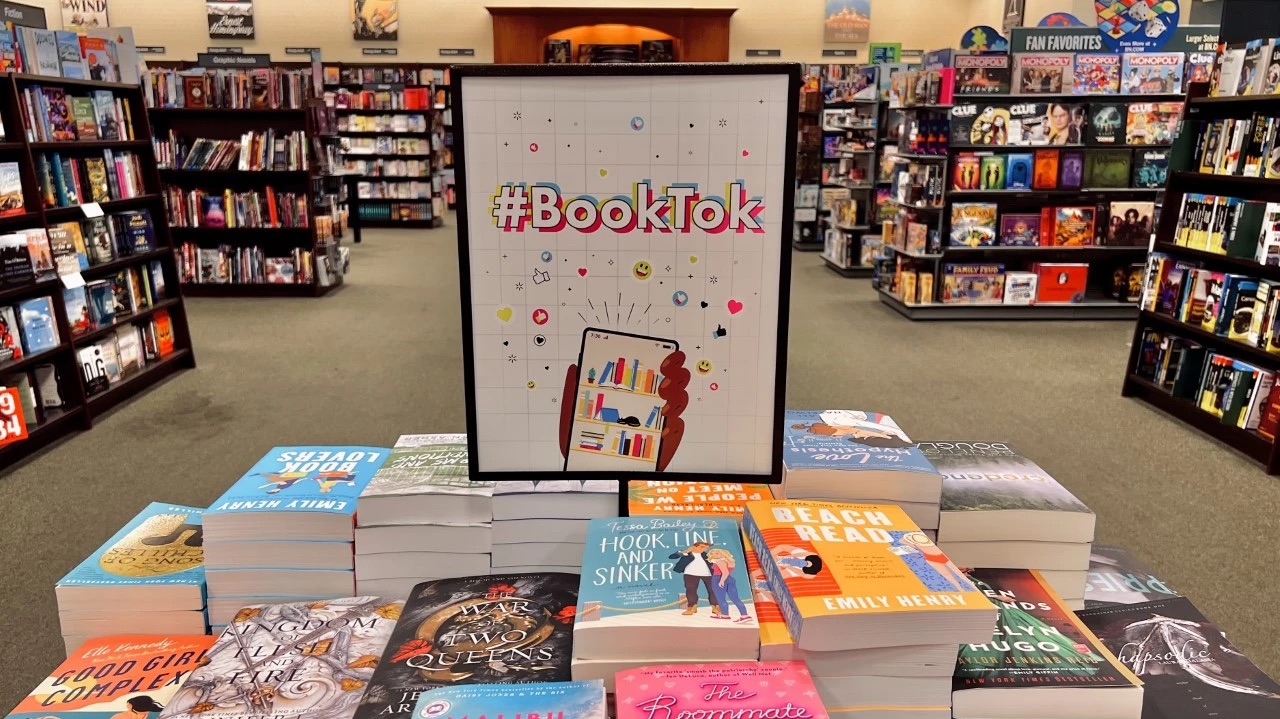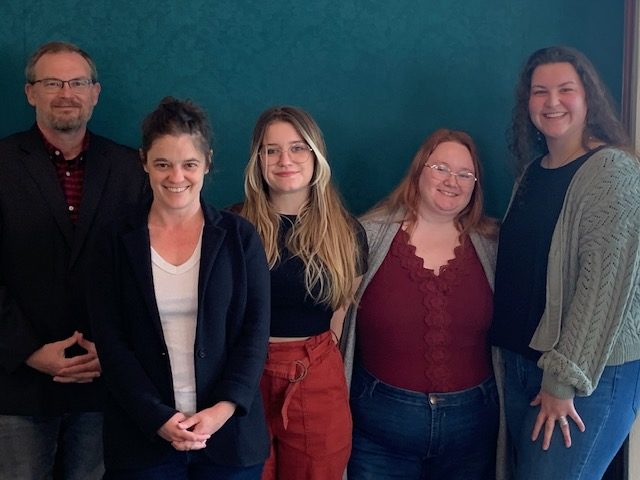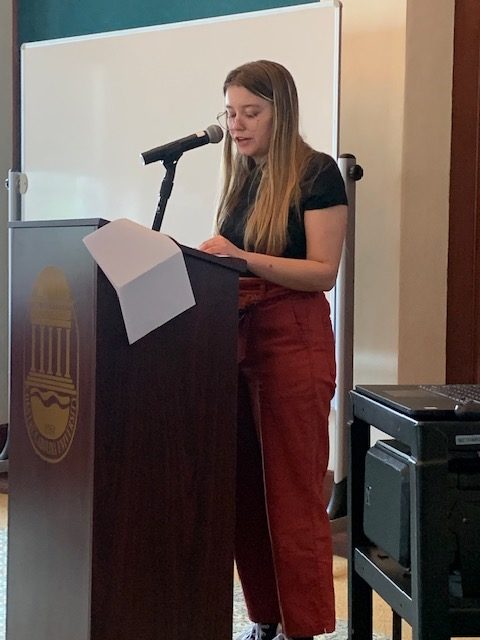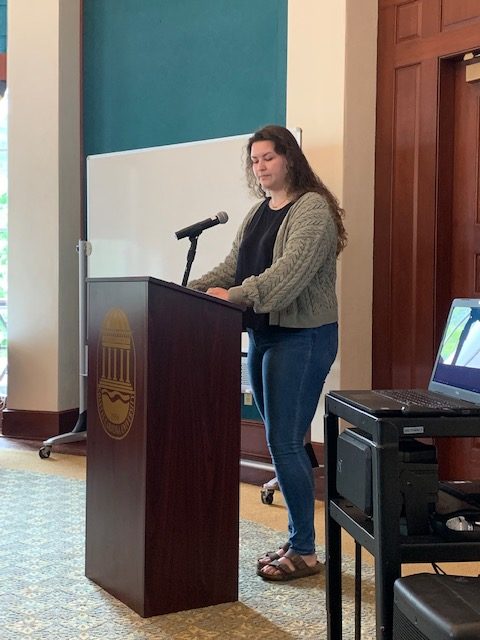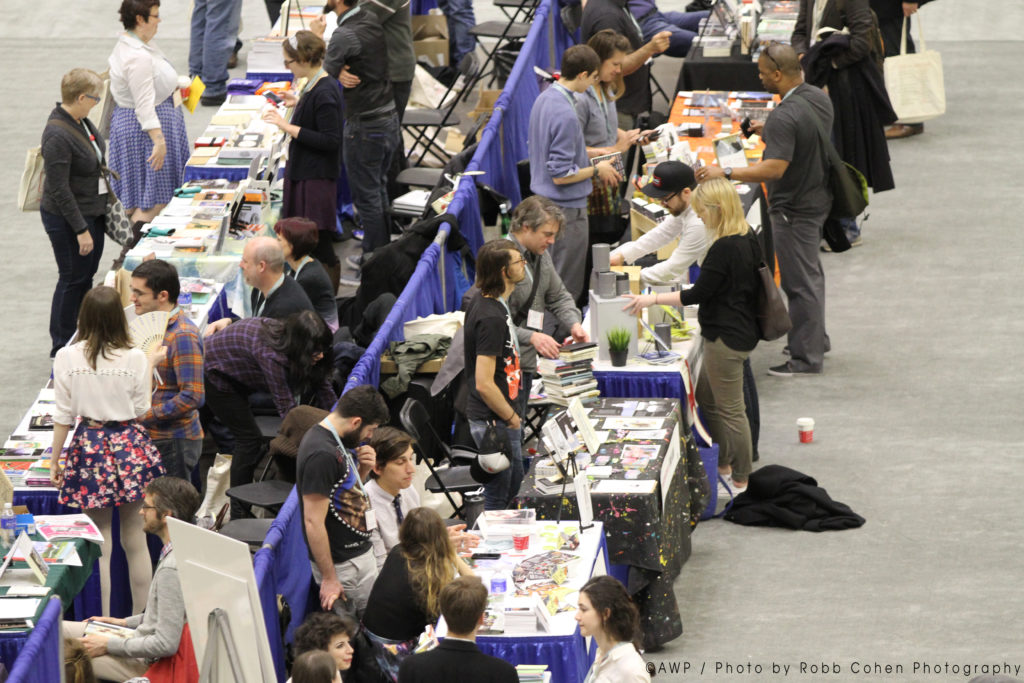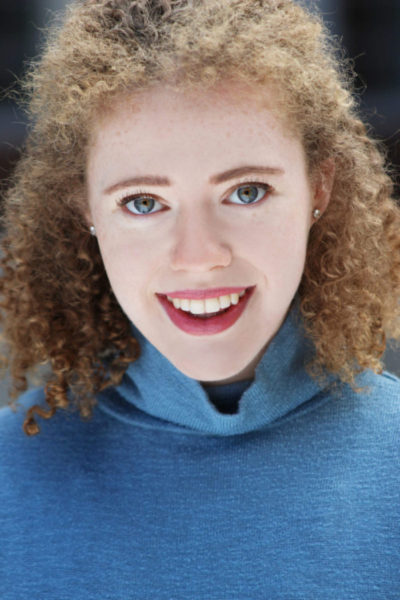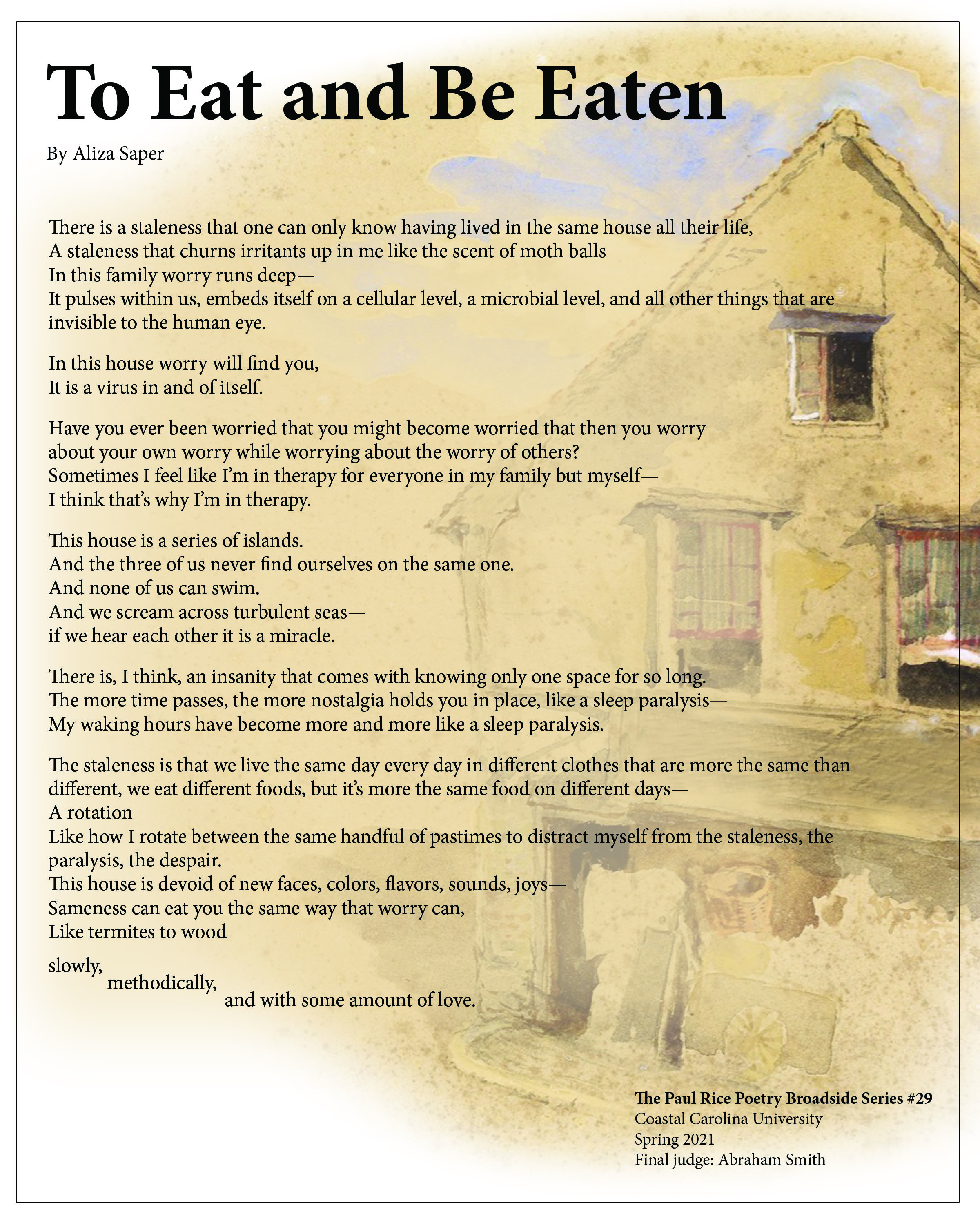When creative writing professor Dan Albergotti encouraged his poetry class to enter the Paul Rice Broadside Series Poetry Contest, one of his students’ winning was in the back of his mind. That is exactly what happened, however, when marine biology major Jingle Wells ’23 ended up winning the competition with her poem “Epitaph,” which she wrote after coming across an Instagram post from a close relative. We spoke with Wells to discover more information regarding her piece.
A photograph showed up Wells’ Instagram feed one day that showed a simple headstone in a graveyard.
“I had just noticed the fact that there was only one word on it,” said Wells, “like the only other thing on there, besides his name and his face with a heart, was the word ‘son.’
This barren headstone struck a chord in Wells, as she thought of all the things the person could have been.
“I thought about the fact, which is sort of covered in the poem, that most people’s gravestones say something like ‘father of three,’ ‘loving mother,’ ‘loving wife,’ something to assert like the mark they made in the world,” said Wells. “He only had the opportunity to be ‘son,’ and he still made a big impact because there are so many people who are still thinking about him and still caring about him.”
This analysis took Wells to new heights, as she was able to draw from this idea into a creative piece. Wells wasn’t new to the Paul Rice Broadside contest; she had entered before, but never won. Her accomplishment stemmed from an evolving style in her poetry and the use of differentiating formats to become one with the current times.
He only had the opportunity to be ‘son’…
Jingle Wells, from “Epitaph”
“I used to write things that did not have as much enjambment or as many line breaks,” said Wells. “They were more in the old antique style, I would say, of sonnets — not quite to the level of being Shakespearian, but very, very form rigid.”
Wells’ reconsideration of her writing techniques led her to find and hone her unique style, and this led to her drafting a poem she really wanted to share. She hopes it will affect the world in a positive way. As contest winner, Wells won $100 and several copies of the broadside, which is a poster printed with the poem and accompanying art.
Wells feels blessed and grateful to have won this contest for her own personal reflections and that she gets to showcase her progress to her teacher, Albergotti, who taught her poetry for the last two semesters. One of the biggest moments this poem has granted her is with Albergotti himself.
“I think the coolest thing that happened to me was Dr. Albergotti, who I really respect not only as a professor but also as a person and a poet, got me to sign a copy of the Broadside for him,” said Wells. This amazing moment truly touched Wells and encouraged her to want to dip her pen into even more poetry, and even other opportunities to come, such as becoming a published writer one day.
For now, though, this exciting news has edged Wells forward towards further education, as she has recently been accepted into the Master of Fine Arts in Writing program at Florida Atlantic University. The immense pride and thankfulness Wells has earned from participating in and winning this competition will aid her in feeling validated in her future creative works. Although Wells is a very recent graduate, her impact and vigor in the classroom will influence both current and future students for years, as she hopes this poem and its message will get out and be shared to everyone.
“I just hope that everyone enjoys it and takes to heart the message of treating every day like the gift that it is,” said Wells.
When you come back next semester, stop by the English department to grab a copy of the Broadside for yourself.
